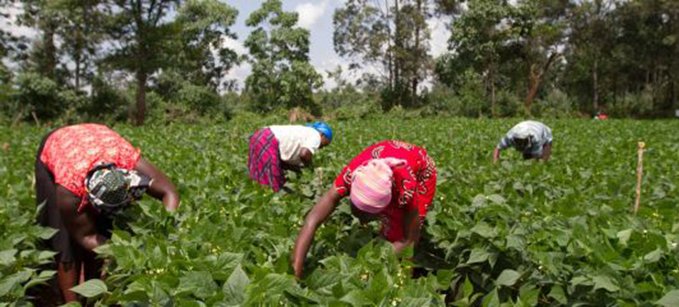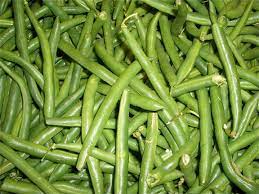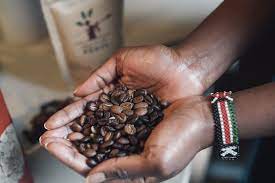
By George Munene
The Farm Africa Growing Futures project is helping over 4,000 young farmers in western Kenya acquire the skills to grow vegetables that are in high demand then linking them to domestic and international markets.
The funding is focused on western Kenya where 80 per cent of the unemployed population is under 35, with farming employing 70 per cent of the country’s rural population.
The youth aged between 18-35 years are trained to acquire technical assistance in horticultural production and agronomy, helping the farmers produce the quantity and quality of produce demanded by high-value buyers and certification schemes.
Related News: Agritech startup giving market to small-scale banana, pumpkin, sweet potato, arrowroot & yam growers
Related News: Kenyan mango farmers resume exports to lucrative European market
They are provided with access to agricultural technologies such as drip-irrigation systems, fertilisers, seeds, and pesticides.
The farmers are further linked to domestic and international markets through training to help them meet export markets’ standards. Once trained farmer groups then facilitated to secure export contracts guaranteeing a market for their produce.
Founded in 2011, Farm Africa is helping farmers in Trans-Nzoia and Elgeyo Marakwet Counties capitalise on the growing demand for produce such as French beans, mangetouts, kale, tomatoes, and cabbages.
“Growing Futures focuses on the youth who are unable to continue schooling and are interested in venturing into agriculture. They acquire technical skills on crop production as well as business skills on how to run their farms as a business,” explained the project’s coordinator Mary Nyale.
Related News: Meru sunflower farmers get ready market from climate adaptation project
For Joseph Kiplagat, the project has been a godsend. After failing to secure an office job, the father of four ventured into agriculture.
Initially struggling to make ends meet while sorely growing maize, through Farm Africa, he shifted to cultivating a mix of vegetables which has enabled him maximise his profits.
The project which also operates in Tanzania, Uganda, Ethiopia, and DR Congo is funded by supermarket chain Aldi UK. Medicor Foundation and UK aifd.
Farm Africa: 254 20 273 1664/ 254 721 576 531/ 254 734 721 208
Email:This email address is being protected from spambots. You need JavaScript enabled to view it.
Write comment (0 Comments)
















